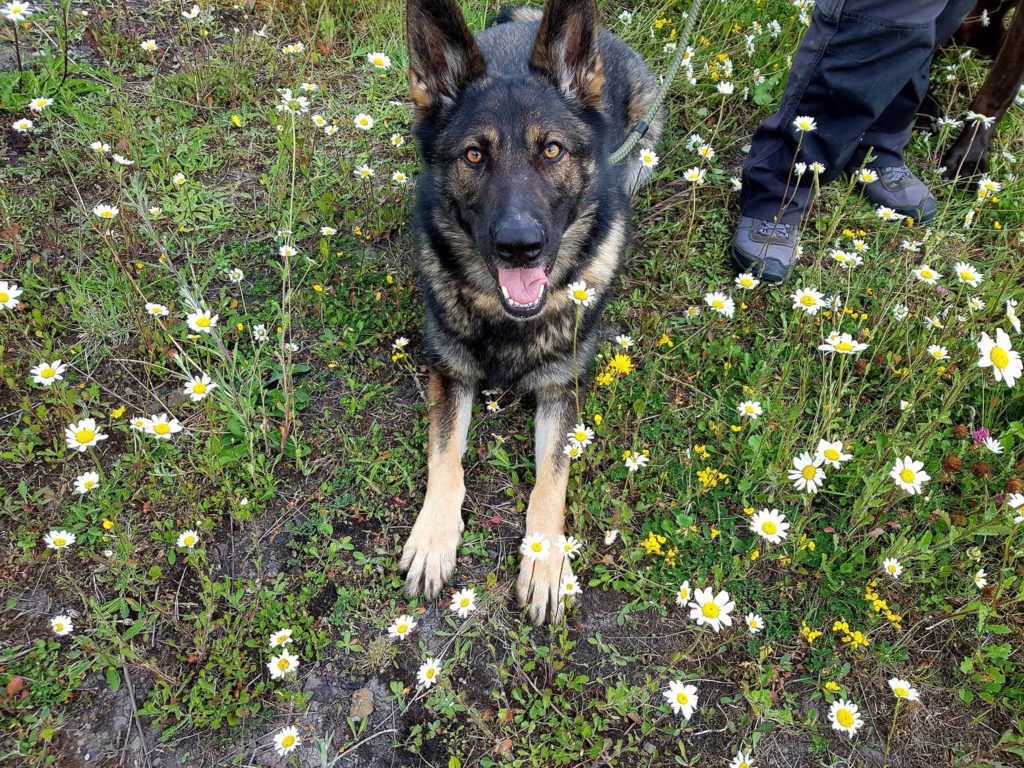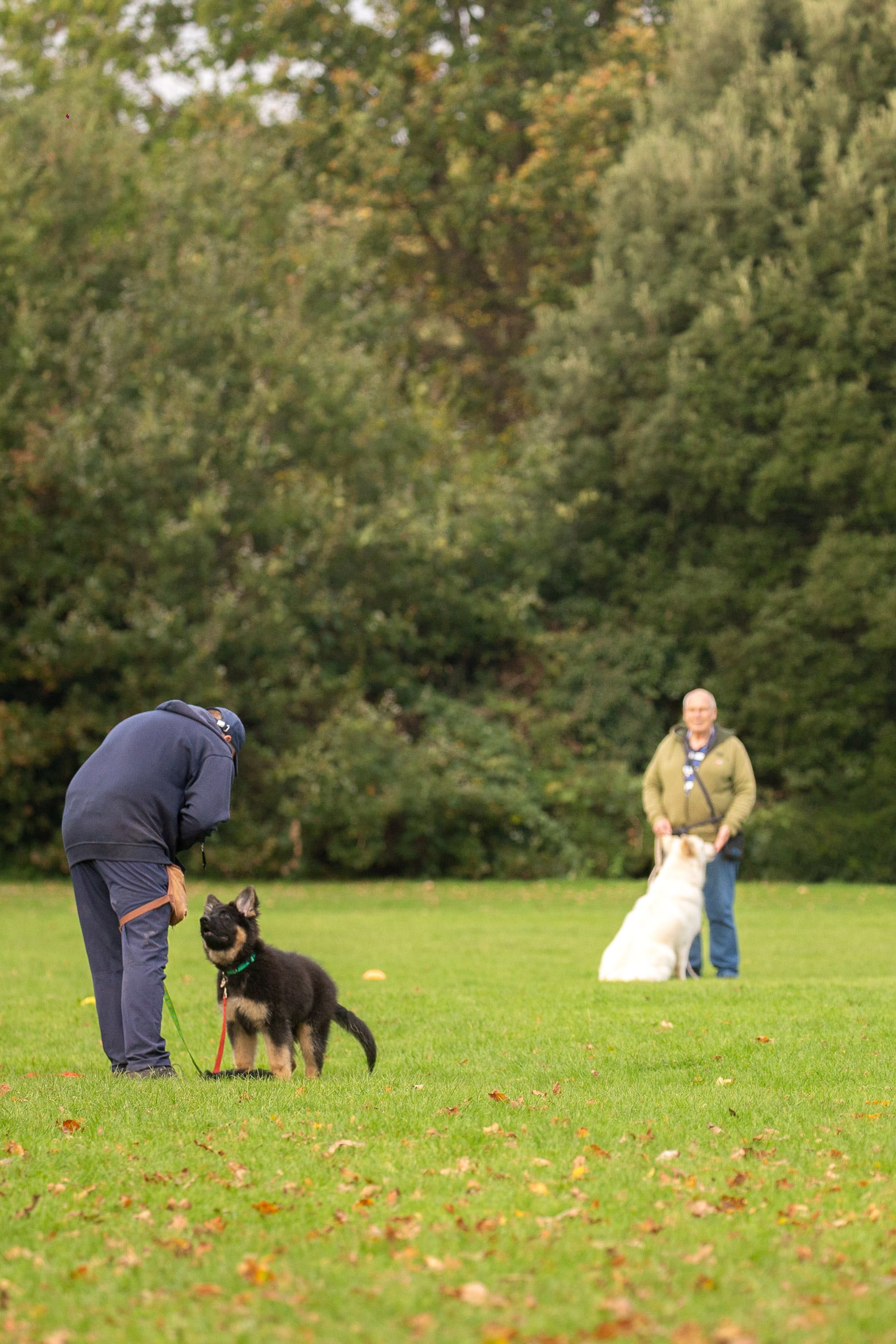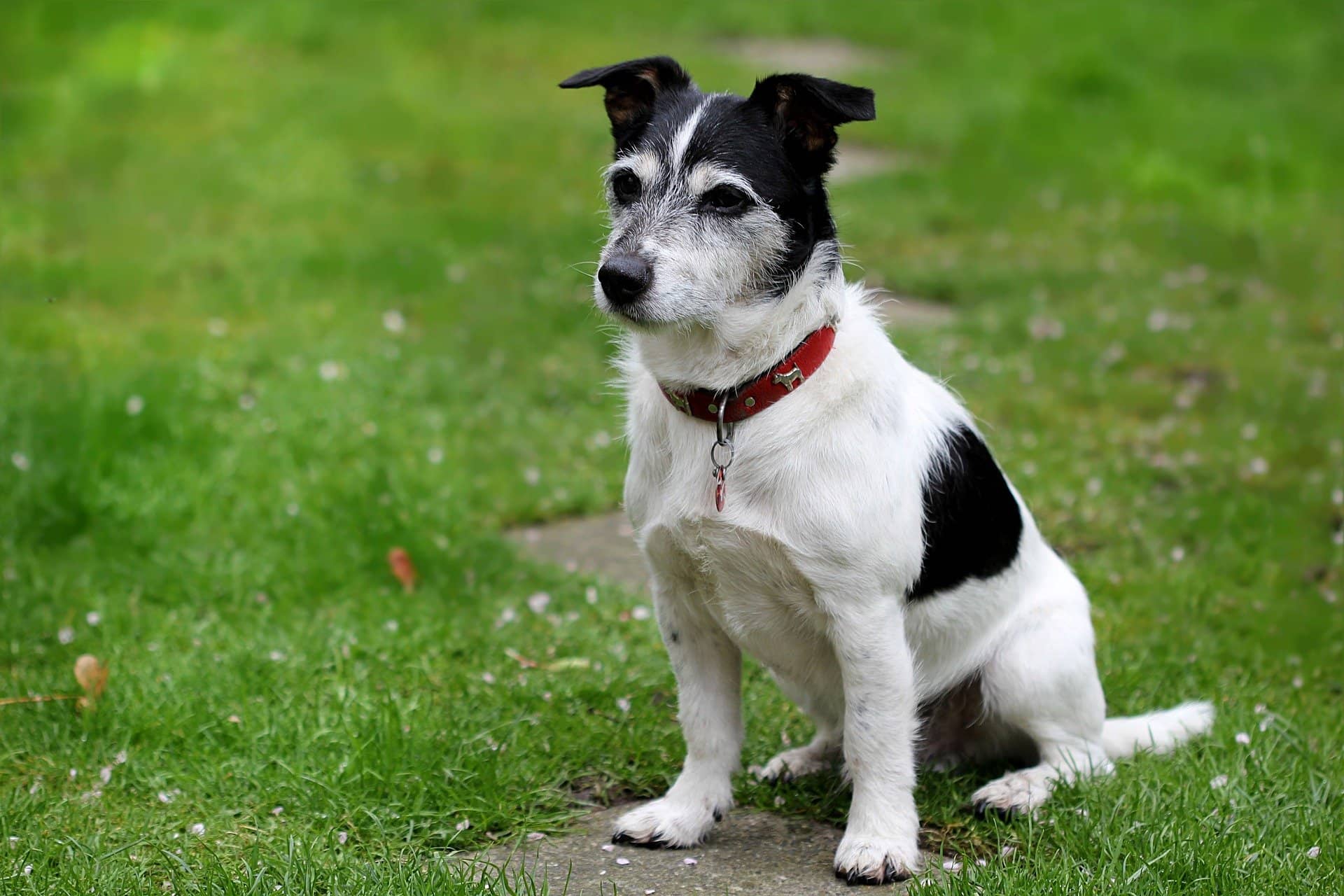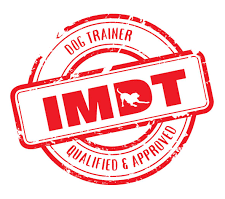Why is my dog so badly behaved outside but so well behaved at home?
If your dog behaves differently in different environments, you are not alone. You might find that your dog behaves impeccably within the confines of your home but turns into a ball of energy and distraction once you step outside. Even outside, your dog may be calm and listening in one spot and all over the place in another, even when it may seem less stimulating to you as their human.
Understanding the reasons behind this behavioural disparity can provide insights into how to train your dog and improve its behaviour in various environments.

Is your dog’s erratic behaviour down to insufficient Puppy Training?
One of the fundamental reasons why dogs exhibit different behaviours indoors versus outdoors is their training history, especially during their formative puppy stage. The first few months are crucial for puppy training, it’s when the learning constantly whether you are actively engaging them or they are just making their own observations! At this young age their bodies and minds are developing very quickly. At this stage they have lots of natural curiosity and open minds, and their focus is on you as their beloved owner. Every interaction, experience, and environment they encounter plays a significant role in shaping their behaviour and temperament as they mature into teenage and then adult dogs.
When your dog is a puppy, they naturally have all eyes on you, they may follow you wherever you go and excitedly do as you ask. It can feel like you’ve cracked it with training quickly and you’ve naturally got a very obedient dog. It’s a great start, but we work everyday with dogs once they become adolescents and beyond. At this stage their focus starts to drift, other things are very exciting too and you aren’t the default centre of their world in the same way! If the focus isn’t reinforced when they are little with reward and understanding, they will very likely find other things they would rather be doing in the environment when they can. Early puppy socialisation training that emphasises positive reinforcement and consistent guidance is crucial for instilling good behaviour habits that can be carried into adulthood.
Puppy Socialisation and Positive Reinforcement
Proper puppy socialisation helps prevent fearfulness and aggression later in life by exposing puppies to different stimuli in a positive and controlled manner. This exposure teaches them to adapt to various situations calmly and confidently.
This includes important life skills like approaching and playing with other dogs, greeting guests to the home and feeling comfortable travelling in the car. But it also includes all of the more personal things that make every family and every situation different. If your dog will be coming to work with you, that might involve a busy commute, or learning how to relax in a work environment. If your dog will be around particular loud noises, livestock, even wheelchairs or mobility aids, these things all need to be introduced at a young age so that they can grow up feeling safe and comfortable around them. We even meet people whose dogs are scared of umbrellas or hats because they had their puppy months in spring and summer and these things weren’t part of their lives!
Puppies are like sponges during their early stages of life, constantly absorbing information from their surroundings. Whether intentional or not, they are learning from every interaction with humans, other animals, and their environment. This is why it’s essential for puppy owners to be proactive in providing structured training and positive reinforcement from the outset.
One of the primary reasons early training is crucial is the establishment of good behaviour habits. Puppies are naturally curious and playful, which can lead to behaviours like chewing, jumping, and nipping. Without proper guidance and boundaries set early on, these behaviours can become ingrained and more challenging to correct as the puppy grows older. Training during this period helps to instil desirable behaviours such as sitting, staying, walking on a lead, and coming when called.

German Shepherds can be extremely obedient dogs when well trained
Training Beyond Puppy Socialisation
As well as introducing your dog to all aspects of life when they are young, early training improves communication between puppies and their owners. Clear communication through training also helps puppies learn boundaries and expectations within the household. Basic recall command training, such as “sit,” “stay,” and “come” establishes a foundation of mutual understanding and respect. It also creates and strengthens the bond between puppy and owner, building a trusted bond for life that all future training and obedience is founded upon. Later this sets them up for success in more advanced training activities, such as agility courses, obedience competitions and even specialised tasks.
Beyond behavioural and social benefits, early training contributes significantly to a puppy’s mental stimulation, cognitive development and overall well-being. Mental stimulation is just as important as physical exercise for puppies, as it keeps them engaged and prevents boredom. The Royvon training philosophy is centred around play and knowing what captures your dog’s attention and engagement at any age to provide motivating rewards for all of the best behaviour. While playing with other dogs is great for building confidence and stimulating for little brains, your dog should continually look to you for the most fun they can have! By letting puppies off to play with others constantly, it’s easy to reinforce the opposite message: that the best fun is had elsewhere and coming back to you will be the end of play time. It’s clear how in time this can lead to a regression in recall and other obedience issues. By limiting playtime with other dogs and being a source of great fun yourself, you establish a bond that dogs want to stick around for.
Force-free and Positive Puppy Training
It’s important to note that early training should always be conducted using force-free, positive reinforcement methods. This is the only type of training we use for dogs of any age and these methods are backed by the latest science. A lot of dog trainers may sound like they are force-free and use the term ‘balanced training’ but this actually means that while they reward for the right behaviours, they also punish the wrong ones.
Positive reinforcement involves rewarding desired behaviours with treats, praise, toys, or affection, which encourages puppies to repeat those behaviours. This approach builds confidence, trust, and a positive association with learning, making training sessions enjoyable for both the puppy and the owner. In fact, we see how a strong bond built over training is a lifelong investment in the owner-dog relationship.
In conclusion, the early days and months of a puppy’s life are a critical period for receiving the right training. Every interaction and experience shapes their behaviour, social skills, and overall development. By providing structured training, positive reinforcement, and early socialisation, puppy owners can set their furry companions on the path to becoming well-adjusted, obedient, and happy adult dogs. Early training not only enhances behaviour and communication but also enriches the bond between puppies and their owners, laying a solid foundation for a fulfilling lifelong relationship.
What can I do about my dog’s lack of focus if we are already past the puppy stage?
If you have inherited a rescue, your dog has developed new issues owing to an incident, or you were not able to socialise your puppy as you would have wished, you may find yourself with a dog who behaves differently out of home, despite your best intentions.
At this point, we recommend an emphasis on focus dog training. Dogs learn that focusing on your commands is rewarding and therefore want to do so. This gives them the tools to concentrate on commands and ignore distractions, which can be particularly challenging in stimulating outdoor environments where there are numerous sights, sounds, and smells competing for their attention. At home where the environment is stable and predictable, your commands may be quite stimulating and worth responding to for a reward, but unfortunately once other enticing rewards are around, they aren’t as appealing. For some dogs this may be the prey drive that means they really want to chase moving objects, for others it might be the desire to play with other dogs, meet new people, maybe even get involved with someone else’s picnic or explore a new area for a good sniff around.
Different Environments and Sensory Overload
Regardless of what your dog finds fun, outdoor environments are likely to offer it in abundance. For some dogs this can actually be quite overwhelming with so many senses and situations having at the same time, particularly those who haven’t been gradually exposed to different environments during their training. From passing cars to other animals and unfamiliar scents, the sensory overload of information can make it challenging for dogs to maintain focus on their owner’s instructions. If uncontrolled, these can also cause various issues, and you might need to engage in dog anxiety training to mitigate them…

We don't just train the dog, the owner is also involved in the training
Expert Dog Training Guidance from Royvon
Our team of experienced trainers at Royvon understands the complexities of dog behaviour and we believe in working to meet the specific needs of each dog and their owner. Whether you’re dealing with behavioural challenges outside the home or simply want to enhance your dog’s training experience, our expert trainers can create a personalised plan that addresses your concerns and goals. Whether your dog needs to improve walking on a lead, reliable recall, or focus amidst distractions, we can provide personalised training solutions that promote positive behavioural changes. By reinforcing desired behaviours with rewards and praise, we empower dogs to make positive choices independently.
- Walking on a Lead: Teaching dogs to remain calm and focused while on a lead, even in the presence of distractions or other dogs, without pulling or being reactive.
- Recall Training: Building a reliable recall response so that your dog returns to you promptly when called, regardless of the outdoor environment and distractions.
- Distraction Management: Helping dogs maintain focus on commands and tasks despite external stimuli such as wildlife, traffic, or other dogs.
- Socialisation Skills: Encouraging appropriate interactions with other dogs and people to enhance social skills and reduce over-excitement in public settings.
Get in Touch to Help your Dog in all Environments
Understanding why your dog behaves differently outside the home is essential for effective training and behavioural improvement. With the right approach, patience, and professional guidance from Royvon, you can help your dog navigate outdoor environments with confidence and obedience, making trips out a pleasure for both of you.
Start your journey towards a calm, focused and well-behaved companion today by reaching out to our team and discovering how positive reinforcement training can make a difference in your dog’s life. Whether you prefer a phone call or a WhatsApp conversation, our expert dog training team would love to help.





Leave A Comment